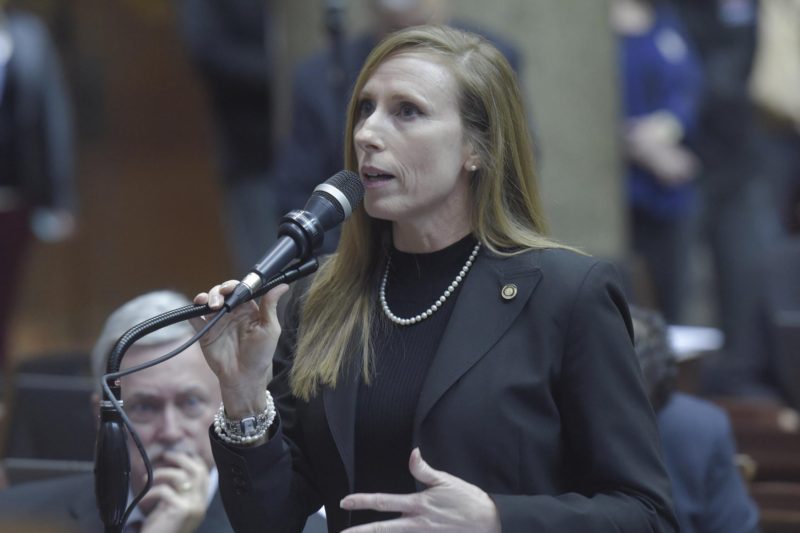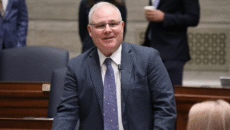JEFFERSON CITY, Mo. — The Senate passed a bill Thursday that aims to prevent HIV, viral hepatitis, and other infections among drug users by allowing certain health facilities to distribute clean hypodermic needles or syringes for free to those users.
SB 64 would exempt these facilities from the offense of unlawful distribution if they operate such a syringe access program or syringe services program (SSPs).
“When it was first brought to me, I was a no,” Sen. Holly Rehder, the bill’s sponsor, told The Missouri Times. “But, we have 30 years of statistics showing syringe access programs lower the number of users. That’s what really made me a true believer, seeing the statistics and the outcomes that these programs offer.”
When Rehder was a representative, the bill passed out of the House each time she filed it. But it always stalled in the Senate without being referred to committee — until now.
A number of groups, including the Missouri State Medical Association and the Missouri Pharmacy Association, and several private health companies, like Vivent Health and BJC Healthcare, spoke in support of the bill when it was heard in the Senate General Laws Committee in mid-January. No witnesses testified against the bill, and it passed unanimously.
“Hearing the bill in committee changes people’s minds,” Rehder said.
One of the main goals of the legislation is to help prevent the next HIV or Hepatitis C outbreak in Missouri, according to Rehder. There are 13 Missouri counties on the Centers for Disease Control and Prevention’s (CDC) list of counties that are at risk of “Rapid Dissemination of HIV/HCV infection Among Persons who Inject Drugs,” meaning areas that are at a high risk of an HIV or Hep C outbreak due to needle sharing. All of these counties are in rural areas.
Missouri reported 74 cases of acute Hepatitis C in 2018, the last year data was available — though the CDC has predicted the true number of infections could be as much as 1,400 percent higher than what is reported.
Syringe service programs are linked to a 50 percent reduction in HIV and Hepatitis C incidence, according to the CDC, which also reported that SSPs do not cause or increase illegal drug use and do not cause or increase crime. Instead, a Seattle study found that new users of SSPs were five times as likely to enter drug treatment programs.
“No one’s going to start using a needle because they got a free one,” Rehder said. “These are people who are already using needles and giving them clean needles helps slow the spread of HIV and Hep C. It is the only thing that is proven to really drop that curve.”
The bill will now head to the lower chamber for consideration.















